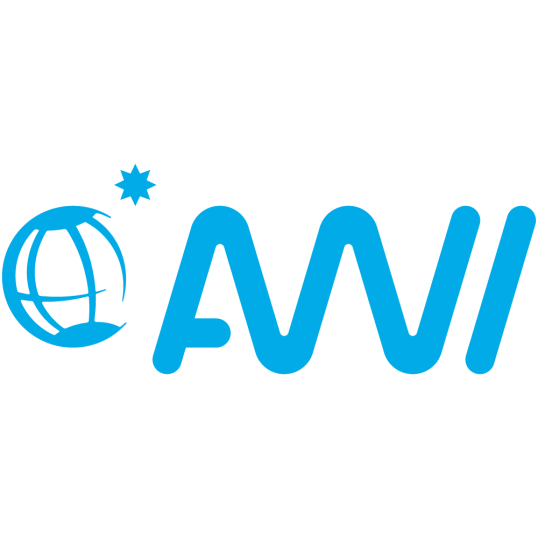- Expert(s)
- Dr. Gesche Krause
- Website
- City
- Bremerhaven
- Country
- Germany
- Type of member
- Academia
- Sea basin regions
- Arctic OceanAtlantic Ocean (including North Sea)International (other sea-basins / ocean)
- Topics
- Climate and the oceanFood from the oceanHealthy and clean ocean
- Environmental domains
- ClimateMarine/Ocean
- Main activities
- Marine Science / Research
The Alfred Wegener Institute Helmholtz Centre for Polar and Marine Research (AWI) is one of the world´s leading polar research organisations and delivers significant contributions to international research on climate, marine and coastal issues. AWI is a member of the Helmholtz Association of German Research Centres (HGF). It has an annual budget of more than 100 million Euros and a staff of more than 1000 employees. AWI conducts multidisciplinary research in the Arctic and Antarctic, as well as in temperate latitudes. In particular, AWI coordinates polar research in Germany and provides the necessary equipment, infrastructure, and logistics for other German institutions and universities performing polar research. AWI keeps the German federal government updated on its research results and provides advice for the development of environmental policies. AWI cooperates extensively with numerous national and international institutions. Through memberships, the AWI is embedded in a number of European Research initiatives, such as the European Polar Board (EPB), the European Marine Board (EMB), and the European Climate Research Alliance (ECRA). Furthermore, the International Coordination Office for Polar Prediction (ICO) and the Association of Polar Early Career Sciences (APECS) are hosted by AWI.In recent years, AWI hosted the International Arctic Science Committee (IASC) and the International Permafrost Association (IPA). In addition to the involvement in numerous EU-funded projects, AWI leads the EU-PolarNet which is a coordination and support action with 22 international partners that will create a plan for an integrated European research programme for the Polar Regions. The latest AWI-coordinated H2020 Project APPLICATE involves 16 partners from nine countries and seeks to investigate ways to improve weather and climate prediction in the face of a rapidly changing Arctic. AWI operates permanent research stations in Antarctica and on Spitsbergen. The research stations on the Northern Hemisphere are operated in close international cooperation. In Ny-Ålesund on Spitsbergen (Svalbard), AWI maintains the small, permanently staffed station AWIPEV jointly together with the French Polar Institute Paul Emile Victor (IPEV). The Siberian research station Samoylov in the Lena Delta is jointly operated with Russia. AWI also conducts operations together with Canadian partners every year since 2006 on Herschel Island, in the western Canadian Arctic. For pan-arctic and regional studies AWI operates the research icebreaker and supply vessel POLARSTERN, the regional research vessel HEINCKE and several smaller vessels, as well as two research airplanes. Knowledge Transfer plays a central role in AWI research, a case in point is 2018 Communicator Award of the AWI director Antje Boetius in which her efforts for multifaceted and cross-disciplinary work in science communication was recognized

